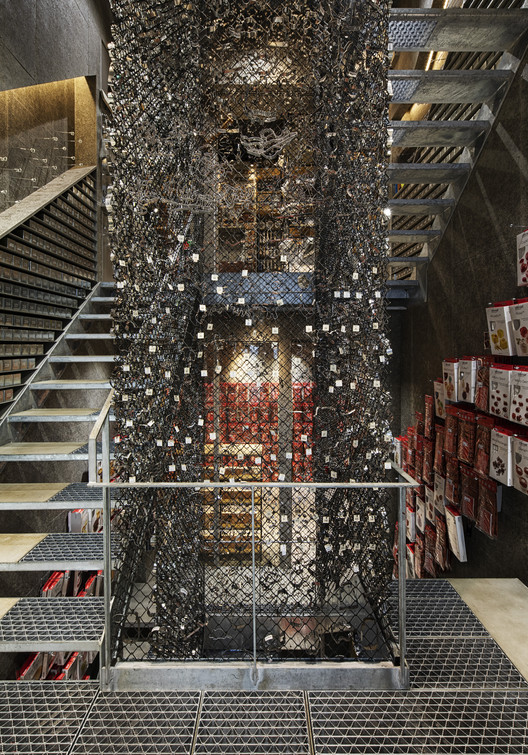
-
Architects: KAMITOPEN
- Area: 52 m²
- Year: 2019
-
Photographs:Keisuke Miyamoto
-
Manufacturers: Vectorworks, CHIKUMAKOZAI, Electric Glass Building Materials, KAWAGURE, Koa, Koiwa
-
Lead Architects: Masahiro Yoshida
-
Engineering: yAt Structure Design Office, Atsuhiro Nakahata

Text description provided by the architects. The history of Kappabashi Tool Street began in the first year of the Taisho era (1912 C.E.) with several tool shops and antiquarian dealers set up at around Kappabashi Bridge over the Shinhori River. Located in the middle of Ueno and Asakusa stations, about 170 specialty shops dealing with tableware, kitchen equipment, kitchen utensils, confectionery tools, food raw materials and packaging supplies are on the 800 meters arcade.




In 1946 , Majimaya confectionery tool shop was founded by the current president's grandfather, Saburo Yoshida. He was succeeded that shop name in officially from Kisaburo Majima tool shop (the oldest confectionery tool shop in Japan) in Kanda Manseibashi. At present, the shop located just around the corner of Asakusa Honganji Temple, about a 3-minute walk from Kappabashi Tool Street from Asakusa Street. They handle tools from all over the world as a specialty shop for confection.

Also, Hitoshi Ohgawara who is the craft man of wooden mold, he had made wooden mold about over sixty years at Majimaya. His molds were popular all over Japan and made the happiness of making sweets for many people. (But he is gone in 2019) Those molds is making people's happiness. So I designed by concept that "Molds of happiness". There are 3000 different types molds that I must show.



A layout was required that allowed the customer to see all of them smoothly and that placed no stress on the staff. In addition, there is a problem that it is an arcade area, and the space basement and the second floor is not effective space for shop. I needed to solve the problem in a limited space. So I suggested setting up that evacuation stairs and protective fences with display of 3000 molds in the center of the building. In addition, I arranged 3000 tin boxes around there. By linking the display with the number printed on the box, it was made so that the customer could select it themselves and take out the required number from the stock.

In addition, during the planning of the building, all floors were connected by split-level floors, and while choosing molds, customers were guided to move up and down subconsciously. This solved the unique problem of arcade area. I have chosen Coal-ten steel for the exterior material. This material increases the strength as it ages. It is a material suitable for "Majimaya" that be going to start even now to over 100 years. I hope that from here, smiles will spread throughout Japan through the making of sweets.



































